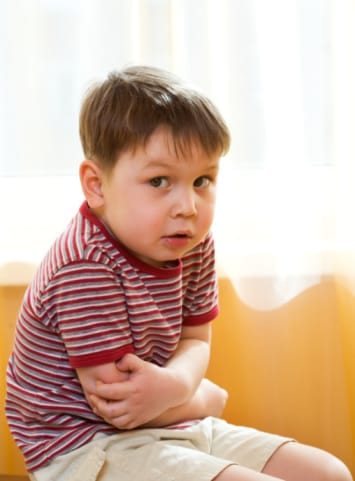Stomach pain is not uncommon in childhood. Sometimes it is a result of an infection like the stomach flu. It may be from an allergy, irritable bowel syndrome, colitis, or other conditions. Sometimes, though, abdominal pain never has an explanation or an obvious cause. New research suggests that this type of unexplained tummy ache in children is related to mental health issues in adulthood.
Kids With Tummy Aches
Researchers from Nashville’s Vanderbilt University looked at over 300 children with a disorder called functional abdominal pain syndrome, or FAPS. FAPS refers to any stomach pain that seems to have no diagnosable cause. They were compared to children who did not have such pains as children. As young adults, these children underwent psychological evaluations to determine any links between mental health and stomach pains. The researchers found a significant difference between the adults who had FAPS as kids and those who did not. Those with FAPS were between four and five times more likely to have an anxiety disorder as adults. They were also more than twice as likely to have depression. Nearly half of the adults with FAPS experienced social anxiety or phobias, while only one-fifth of those without it did.
The Brain-Gut Connection
The research linking stomach pain to adult mental health is new, but to those who understand this issue, it is not surprising. Plenty of research has proven that there is a connection between your gut, or your digestive tract and your brain. Your gut is lined with an extensive system of neurons, or nerve cells. While your gut’s primary job may be to digest food, it also acts like a second brain. Officially termed the enteric nervous system, your gut’s brain includes more nerve cells than your spinal cord, and helps you to feel with your stomach. The reason we evolved this secondary nervous system is likely because it helps the gut to act on its own. Your gut can react to food and begin to digest it without getting the brain involved. The connection may also be important for sending information from the gut to the brain. When your stomach is upset, you feel it emotionally because of this connection. When you feel butterflies in your stomach while nervous or stressed, you are feeling this connection from gut to brain.
Stomach Pain and Anxiety
The research that points to tummy aches and later anxiety is yet another example of how connected our brains are to our digestive tracts. The kids in the study were not anxious simply because they had upset stomachs. The feelings of anxiety lingered after the pain was gone, and for many, continued into adulthood. The results indicate that treating children with FAPS should include elements of mental health care. The researchers suggest that when treating children with unexplained and chronic stomach pain, doctors should consider both the physical and the emotional symptoms. By addressing the anxiety that accompanies the pain, doctors can help children better cope with their symptoms. They may also be able to help these children prevent anxiety disorders as adults, or at least learn how to get treatment. Parents are also encouraged to take into account the mental health of their children with FAPS. It is not uncommon for parents to let their children stay home from school and other activities, even after a doctor has cleared them of any physical illness or cause of the stomach pain. If parents better understood the FAPS-anxiety connection, they would realize the importance of getting their kids back into their activities. By encouraging them to get involved, parents can help their kids better cope with feelings of anxiety and depression. This in turn could help relieve the stomach pain. More research needs to be conducted to better understand just how stomach pain and anxiety are related. Figuring out this connection can help lead to better treatments and prevention methods for both the physical and the emotional symptoms. For now, just knowing that there is a connection means that more children can be helped to cope with their pain and their anxiety and to become healthier adults.

